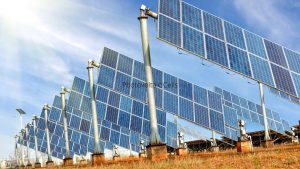Understanding the Role of SAP Calculations in Assessing Hot Water Systems in Residential Buildings
The energy performance of residential buildings is a growing concern in today’s eco-conscious world, striving for sustainable living. To regulate and optimise this, the Standard Assessment Procedure (SAP) calculations play an essential role. Among various aspects evaluated, hot water systems constitute a critical component due to their substantial influence on energy consumption and efficiency in homes. These calculations help ensure that a building complies with building regulations, thereby improving its energy efficiency and reducing environmental impacts. This article meticulously explores how SAP calculations evaluate hot water systems, thereby contributing to an increased overall SAP rating.
Components Considered in SAP Calculations
SAP calculations scrutinise several key components of hot water systems to ascertain their energy efficiency:
- Type of Hot Water System: The kind of system installed, whether conventional boilers, heat pumps, or solar thermal systems, profoundly impacts energy efficiency. Each type has distinct energy consumption characteristics, influencing the building’s overall energy performance. For example, heat pumps often boast higher efficiency compared to conventional systems due to their ability to convert environmental heat into usable energy.
- Efficiency of the System: The systemic efficiency of the hot water system encompasses factors like the boiler’s inherent efficiency and additional features such as Flue Gas Heat Recovery (FGHR) systems or weather compensators. These modern features can enhance the boiler’s performance, leading to significant reductions in energy consumption. By opting for advanced boilers with integrated features, homeowners can witness a substantial improvement in their building’s energy efficiency.
Data Requirements for Accurate SAP Calculations
To effectively execute SAP calculations, comprehensive and precise data about the hot water system is paramount:
- Specification of Hot Water Generation: Details about the hot water system, including the type, model, and inherent efficiency details of the boiler or other heating devices, are necessary. Specifics such as these provide the baseline input into the SAP software for analysis.
- System Performance Data: Actual performance data, encompassing the system’s energy consumption and efficiency ratings, are input into the SAP system. Accurate data helps ensure the SAP software can calculate realistic energy consumption predictions and emissions related to the hot water system.
The SAP Calculation Process Explained
The SAP calculation methodology involves several structured steps designed to assess the efficiency and impact of hot water systems:
- Input into SAP Software: The detailed specifications and performance data are entered into the designated SAP software. This software, using predefined algorithms, then calculates the expected energy consumption and emissions associated with the hot water system.
- Comparison with Notional Values: During the construction of new buildings, the hot water system’s performance is juxtaposed with notional or benchmark values. This comparison ensures compliance with prevailing building regulations. Conversely, for existing structures undergoing extensions or conversions, both the performance of existing and proposed systems are evaluated to ensure they adhere to energy efficiency requirements.
Significance of Hot Water Systems on SAP Ratings
One of the core aspects of the SAP evaluation is its influence on a building’s overall energy rating:
- Lower Energy Consumption: Efficient hot water systems inherently consume less energy, resulting in reduced overall energy bills and decreased CO2 emissions. These factors make a building more sustainable, enhancing its SAP rating. Such systems improve the quality of living by combining cost-effectiveness with eco-friendliness.
- Regulatory Compliance: A hot water system meeting or exceeding the Target Emission Rate (TER) and Target Fabric Energy Efficiency (TFEE) is essential for compliance with building regulations. Higher SAP ratings indicate improved energy efficiency and a lower environmental footprint, ensuring the building adheres to regulatory standards.
Reporting via SAP Calculations: Energy Performance Certificates (EPCs)
Through SAP calculations, detailed assessments lead to the generation of important documentation:
- Predicted Energy Assessment (PEA): This assessment gives an estimate of energy consumption for hot water alongside other pivotal parameters, serving as a precursor to obtaining an Energy Performance Certificate (EPC).
- Energy Performance Certificate (EPC): The EPC reflects a comprehensive overview of the building’s energy performance, including hot water systems. It acts as a certification, illustrating the building’s energy efficiency status to prospective buyers or renters, thereby influencing its real estate value.
Thank you to Ratio Seven for providing indispensable resources that facilitated this comprehensive understanding of SAP calculations related to hot water systems.
FAQs
Q1: Why are SAP calculations important for hot water systems?
SAP calculations are crucial because they provide a detailed analysis of a building’s energy performance. By evaluating hot water systems, SAP calculations help determine the system’s efficiency and energy consumption, ensuring it meets relevant building regulations. This results in enhanced energy efficiency, reduced energy bills, and a lower carbon footprint, contributing to more sustainable living environments.
Q2: How does improving my hot water system impact my SAP rating?
Improving the efficiency of your hot water system can significantly elevate your building’s SAP rating. Modern, efficient systems are designed to consume less energy, which reduces overall energy costs and carbon emissions. Better SAP ratings not only reflect a building’s compliance with regulatory energy standards but also enhance its market appeal, potentially increasing property value when aligned with terms set by the Energy Performance Certificate.
Q3: What is the role of a boiler’s efficiency in SAP calculations?
A boiler’s efficiency is a pivotal factor in SAP calculations because it directly affects the energy utilised in heating water. High-efficiency boilers convert a greater portion of the fuel energy into usable heat, reducing wastage and diminishing overall energy requirements. By incorporating modern boilers with features such as FGHR systems, buildings can hugely benefit from lower energy consumption, which improves their SAP ratings.
Q4: Can SAP calculations help in choosing the right hot water system?
Indeed, SAP calculations can guide homeowners and developers in selecting appropriate hot water systems. By understanding how different systems perform under various parameters, informed decisions can be made to choose systems that not only meet energy needs but also ensure regulatory compliance. SAP assessments offer valuable insights into the efficiency potential of various systems, making them a crucial tool during the decision-making process for new installations or upgrades.
How do SAP Calculations factor in hot water systems summary
SAP calculations offer a vital perspective in the sustainable development of residential buildings by evaluating their hot water system performance. By understanding and navigating through the complex calculations involved in SAP evaluations, developers and homeowners can choose more efficient systems, resulting in enhanced energy performance, compliance with regulatory standards, and reduced environmental impact. Companies like Ratio Seven augment this process by providing vital support and resources, ensuring that the journey towards more sustainable living spaces is both enlightening and achievable.
Emphasising these nuances in SAP calculations underscores the criticality of meticulous planning and execution in achieving energy-efficient residential constructs.




